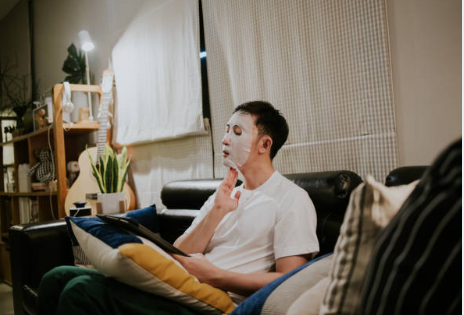Does Self-Care Improve Mental Health
Using the best methods of self care can help you improve your mental health. Whether you are looking for tips for taking care of your physical, emotional, or spiritual health, you’ll find them here.

Selfpause Affirmation App
Download the app to get 1,000’s of affirmation meditations and everything you need to write, record and listen to your own.
Emotional self-care

Taking care of your emotional health can improve your mental health and make you feel better. You might be surprised to learn that practicing emotional self-care can help you to reduce your stress and anxiety.
Emotional self-care is about practicing self-compassion. This helps you to be more aware of your feelings and to maintain a healthy inner dialogue. It’s also important to be aware of how your emotions can affect your choices.
Taking care of your emotional health will help you to cope with life’s stresses, and it will allow you to be more resilient when facing changes. It will also make you feel more confident and empowered. You will be able to better assist others.
Taking care of your emotional health should be a priority. People who don’t take care of their emotional well-being may end up being overwhelmed, and their physical health may suffer.
When you are feeling overwhelmed, it’s important to reevaluate your priorities. Taking a break from your busy schedule can help you recharge your emotional batteries. It can also be beneficial to join a support group or local support network.
It’s also important to have a positive mindset when it comes to your emotions. You don’t want to feel stuck in a rut. You want to be able to have a sense of purpose in life. It’s also important to be aware of how your emotions can affect your relationships. If you’re feeling angry, for instance, you’ll want to try and avoid that person.
Self-care has different meanings for different people. For example, some people consider therapy to be self-care, while others consider it to be a way to reduce anxiety.
Emotional self-care can be difficult to practice. You may feel guilty or overwhelmed. If this is the case, it’s important to start with small steps.
You can begin by making a list of the things you are doing. It can be helpful to write out your priorities, and to include things you love doing. You may also want to list the people you’re closest to, and the stressors that cause you to feel overwhelmed.
Physical self-care

Taking care of your body and mind is crucial to achieving good mental health. It will help you feel better and make it easier for you to be there for others.
Physical self-care includes exercising, eating well, and staying hydrated. It also involves resting when you need to. It has been linked to longer lives. It also boosts your mood and increases your energy.
It also helps you cope with stressful situations better. It can also reduce your symptoms of depression and anxiety. It can be as simple as making a few extra minutes for yourself each day.
Exercise has also been linked to a longer life. Spending time outdoors helps reduce stress. It also has a positive effect on your sleep.
Taking time to think about the good things in your life can also help improve your mental health. You should regularly reassess your life and try to find ways to reduce stress. You can also make a “no list” to help you stay grounded.
It is also important to spend time with your family and friends. It helps you develop stronger relationships. It also improves your overall happiness.
Taking time for yourself can also improve your relationships with others. When you are happy, you are more willing to give to other people.
Exercise also boosts your mood. It can also help you feel more confident. It can also boost your energy levels and increase serotonin levels in your body. Taking care of your physical health is an important part of achieving good mental health.
You should also take time to exercise your mind. This is especially important for those who are stressed out. Take a walk, stretch, or do some other activity that helps you recharge your energy.
Taking time to meditate, write in a journal, and leave positive notes for yourself can also improve your mental health. It can also be helpful to find a hobby. You can find activities online, in your community, or at your local library. It is also possible to find someone to talk to about your concerns.
It is important to take care of your mind and body so that you can be your best self. It can help you live a healthier, happier, and more fulfilling life.
Social self-care

Keeping social connections is an important part of maintaining good mental health. It’s not just about having friends, but also about making sure you have enough social support. If you don’t, you could be at risk for stress, depression, or even diabetes.
The best way to keep your social connections healthy is to create time to do so. Make a conscious effort to get out of the house, attend your favorite restaurant, or even call your family. You may also want to look into starting a new hobby class or joining a local group.
You can even use social media to help improve your social life. You can find groups online to join or create your own. You can even preplan a weekly or monthly date with a friend or family member.
If you’re an introvert, social self-care may be a little tricky. For example, you may be tempted to stay in bed all day, but a little socialization will go a long way.
The National Institute of Health has done its own research on the subject and reports on social health. They have found that people with solid social ties have a lower mortality rate than those who have poor connections.
Using social networks to connect with others is a must. You can do this by participating in local groups or by donating some of your time to the community. You may also want to try a social media detox to give you more time to socialize. This is not to say you should avoid social media altogether, but it’s not a bad idea to step away from it for a while.
The best way to implement this type of self-care is to determine what your needs are. If you’re a busy college student, you may need to do something to boost your self-esteem. You can go on a weekly date with a friend, take a hobby class, or go out for a drink. You may also want to look into the benefits of taking a short meditation or yoga class. You could also do a little research on the health benefits of participating in an online support group.
Spiritual self-care

Taking care of your spiritual self can help you to heal and cope with stress. It also helps to strengthen your connections with the world and create a sense of inner peace.
Spiritual self-care can be practiced through meditation, attending religious services, or by spending time in nature. Any activities that help you to develop deeper meaning in life can be considered spiritual self-care.
One of the best ways to begin a spiritual self-care practice is to create a spiritual journal. This journal can be used to record your spiritual growth and insights. You can also refer to a spiritual advisor, who can help you to answer any questions you may have.
Meditation is one of the most recommended self-care practices, and it can help you to relax and connect with your inner self. It has also been proven to help you to become more focused and less stressed.
Meditation can also help you to cleanse the emotional energy in your body. For this reason, adding essential oils to your meditation is a great way to start cleansing your mind and spirit. There are a variety of essential oils available, but third-party tested and approved brands are the best choices.
Another way to practice spiritual self-care is to cultivate gratitude. The practice of gratitude can condition the brain to see and appreciate the good in life. You can also practice self-compassion, which will help you maintain a healthy inner dialogue. Self-compassion also helps you to see situations as opportunities for growth.
Spiritual self-care doesn’t have to be complicated. It can be as simple as taking time to go for a walk in nature. It can also be as complex as meditating every day, attending a religious service, or studying a religious text. These activities may take 10 minutes or more, but they can be an essential part of your spiritual self-care routine.
Many people associate spirituality with religion, but it is not necessarily needed to practice spiritual self-care. It can also be experienced through music, dance, art, and nature. You may even want to explore your spiritual side through a fellowship group.
Our Top FAQ's
Self-care refers to the actions that individuals take to preserve and improve their physical, mental, and emotional health. It can include activities such as getting enough sleep, exercising regularly, eating a healthy diet, and engaging in activities that bring joy and relaxation. Practicing self-care can improve mental health by reducing stress and promoting feelings of well-being. It can also help individuals better manage their mental health conditions, such as anxiety and depression.
Some specific self-care practices that can improve mental health include:
- Getting enough sleep
- Exercise and physical activity
- Eating a healthy diet
- Engaging in activities that bring joy and relaxation, such as hobbies, social activities, and spending time in nature
- Limiting or avoiding alcohol and drug use
- Engaging in mindfulness practices, such as meditation or deep breathing
- Seeking social support from friends, family, or support groups
- Seeking professional help, such as therapy or counseling, when needed
Self-care can be an effective tool in managing and reducing symptoms of mental health conditions such as anxiety and depression. It can help individuals better cope with their symptoms and improve their overall well-being. However, self-care should not be used as a standalone treatment for mental health conditions. It is important for individuals with mental health conditions to also seek professional help, such as therapy or medication, as needed.
Self-care can be an important part of managing and improving mental health, but it should not be used as a standalone treatment for mental health issues. For individuals with mental health conditions, self-care should be used in conjunction with other forms of treatment, such as therapy or medication, as recommended by a mental health professional.
To incorporate self-care into their daily routine, individuals can try the following:
- Make a list of self-care activities that they enjoy and that promote their well-being
- Set aside time each day for self-care, such as a specific time for exercise or a relaxing activity
- Incorporate self-care activities into their daily routine, such as taking a few minutes to practice deep breathing or mindfulness during breaks
- Seek support from friends and loved ones to help prioritize and make time for self-care
- Seek professional help, such as therapy or counseling, when needed to address specific mental health concerns and develop a self-care plan that is tailored to their needs.
